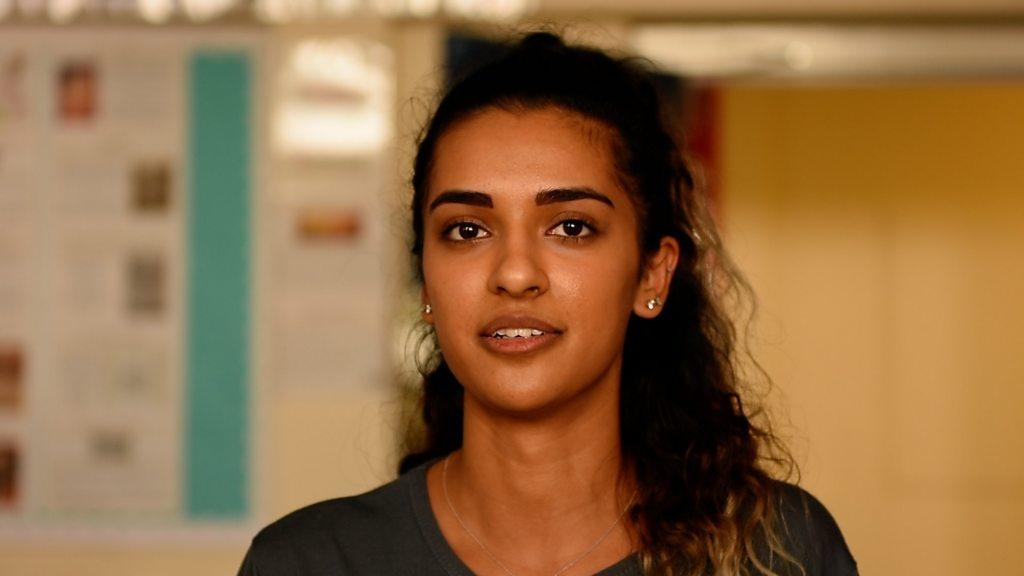BAME teacher shortage at 'crisis point' in Wales
- Published
Natalie Jones says teaching did not seem like a possible career choice because she “never saw a black teacher”
A shortage of black, Asian and minority ethnic (BAME) teachers in Wales' schools is "at crisis point", the chair of Race Council Cymru has said.
Judge Ray Singh has called for more investment to encourage people from these communities into teaching.
Figures show the number of teachers from mixed ethnic groups increased from 1.1% in 2016 to 1.3% in 2020.
The minister for education said Wales' diversity was one of its "greatest assets" and more action would be taken.
Mr Singh said: "If we want to embed a culture of inclusion in our schools, where black and diverse histories are taught with conviction and clarity, we need more and more teachers with lived experiences of racial inequalities to lead the way."
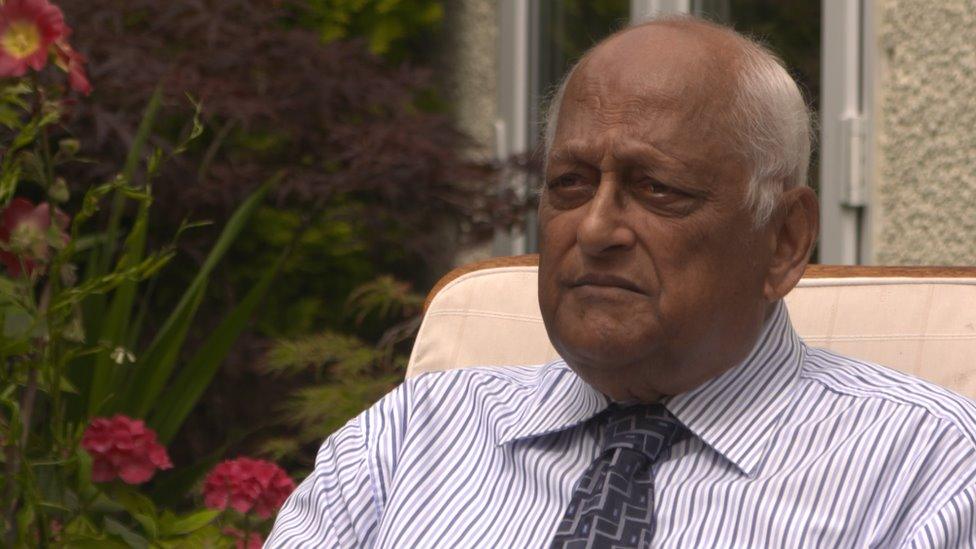
Ray Singh: "We need more and more teachers with lived experiences of racial inequalities to lead the way"
He said fairer recruitment practices and opportunities for progression were needed in order for this to happen.
The percentage of registered school teachers recording their ethnicity as "mixed/multiple ethic groups" changed by 0.2 percentage points between 2016 and 2020, according to a report, external by the Education Workforce Council (EWC).
This compared with a rise from 88% to 91.2% for those reporting as white, while those referred to as "unknown" or "refused" fell from 10.9% to 7.5% in the same time period.
In 2019, the EWC found just seven out of 3,443, external serving headteachers or executive headteachers were from "non-white minority ethnic backgrounds", while 48 BAME students signed up for initial teacher training in 2019-20.
'A shortage of role models'
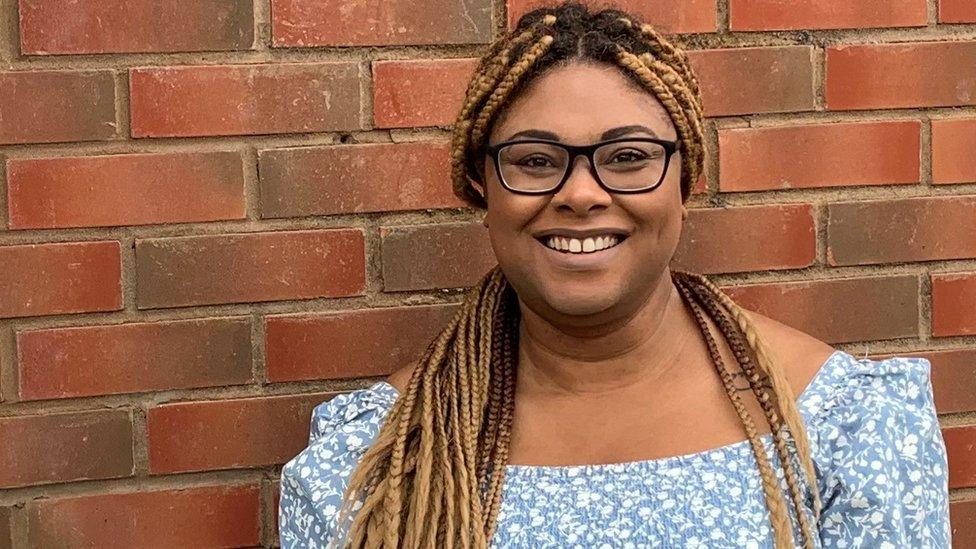
Natalie Jones: "Growing up, I never saw a black teacher"
For Natalie Jones, becoming a teacher did not seem like a possible career choice.
"Growing up, I never saw a black teacher," said Ms Jones who was born in Birmingham to Jamaican parents before moving to Pwllheli, Gwynedd, aged nine.
"Sometimes in some careers, unless you see somebody else who looks like you doing it, it doesn't enter your head you can do it.
"A shortage of role models could be one of the reasons why there is a shortage of teachers from what is labelled as the BAME group."
Ms Jones, who now lives in St Clears, Carmarthenshire, will be starting her first teaching post in Neyland, Pembrokeshire, in September.
She said more support for people "from backgrounds like mine" would help to give their careers a kickstart.
"I think with the right backing from our leadership in Welsh government, we can get there," she added.
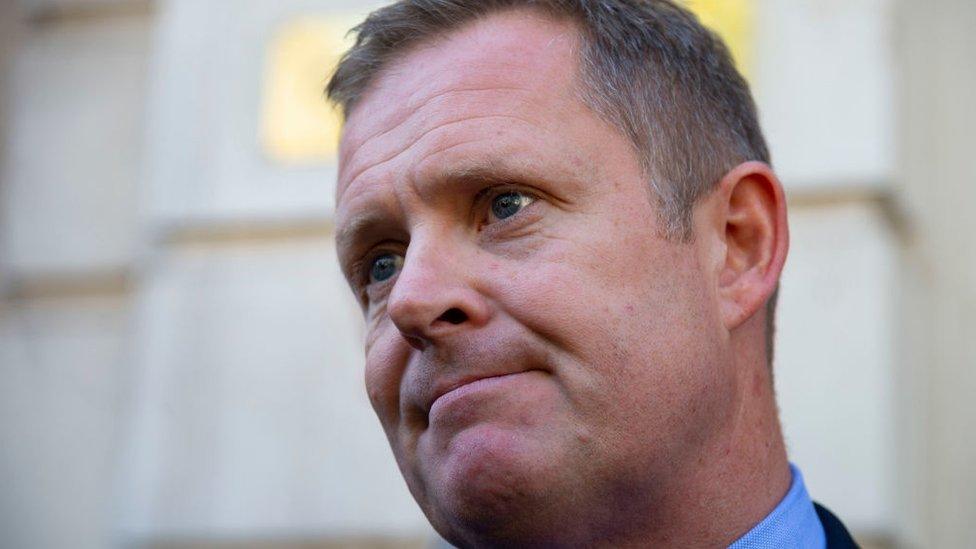
Jeremy Miles says the Welsh government is "not where we need to be" on diversity among teachers
Education Minister Jeremy Miles told BBC Radio Cymru's Dros Frecwast programme diversity was "one of the greatest assets we have in Wales and it is absolutely essential that this is reflected in our teaching".
"We are not where we need to be," he added.
'Rich diversity'
Mr Miles said the Welsh government was working on implementing the recommendations of a report it commissioned on Black, Asian and Minority Ethnic Communities, Contributions and Cynefin in the new school curriculum, external.
"My plan is, in autumn term, to bring forward a strategy of recruiting black and minority ethnic candidates into our teaching workforce to make sure it draws on the rich diversity we see all around us in Wales," he said.
The report said there was "considerable evidence to confirm racial inequality is a feature of education in Wales, relating to attainment, school policy and practices, the curriculum and the workforce".
It called on the Welsh government to ensure local authorities set out a strategy for recruitment, retention and career progression of BAME teaching staff and that they publish data year on year.
Among a raft of recommendations, it said ministers should provide specific scholarships to support initial teacher education students from BAME groups.

KEEPING FAITH: Binge-watch the the third and final series
LAND OF THE WILD: SECRETS: Explore the hidden world of Welsh wildlife like never before

- Published4 April 2021
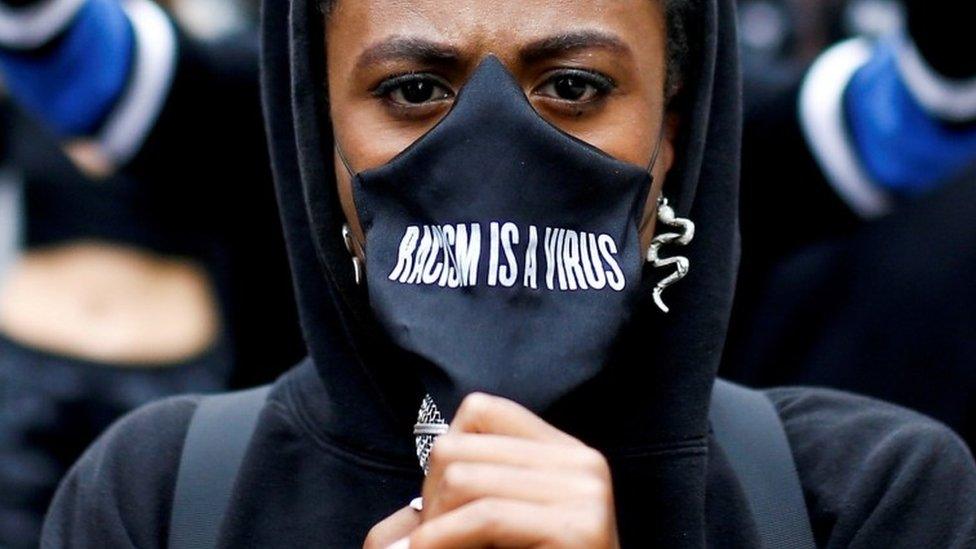
- Published19 March 2021

- Published19 November 2020

- Published30 June 2020

- Published21 June 2020
